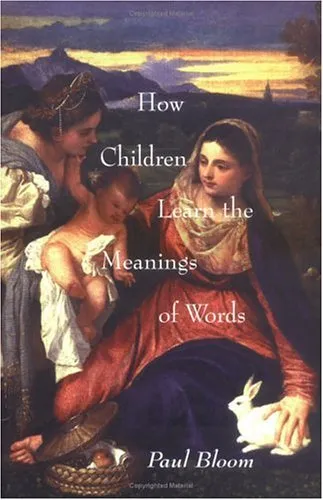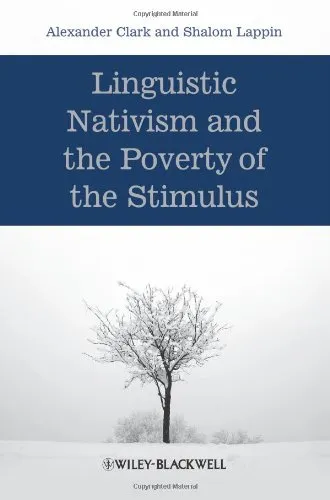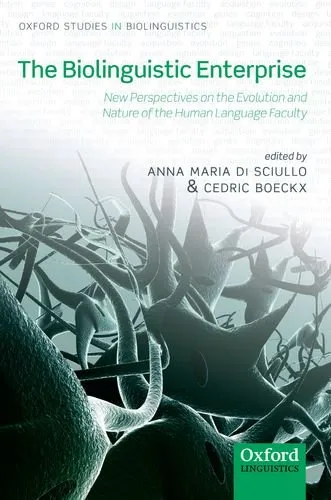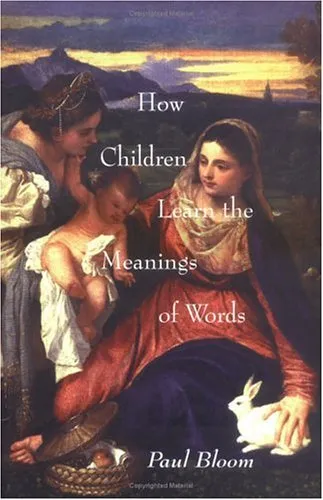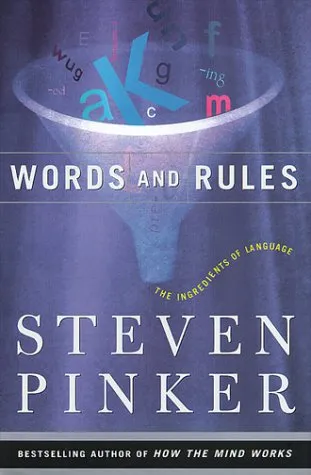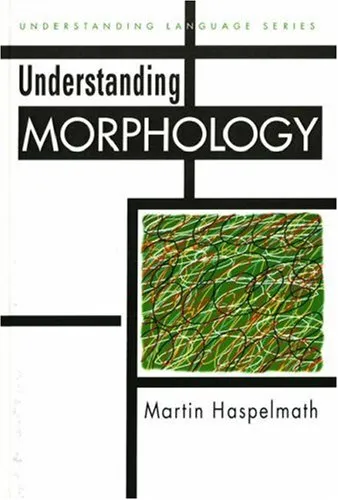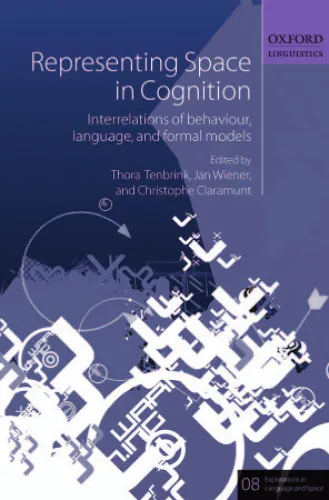How Children Learn the Meanings of Words (Bradford Books - Learning, Development, and Conceptual Change)
4.5
Reviews from our users

You Can Ask your questions from this book's AI after Login
Each download or ask from book AI costs 2 points. To earn more free points, please visit the Points Guide Page and complete some valuable actions.Related Refrences:
Introduction
Every word we use in our language carries a story—a rich tapestry of meaning, memories, and associations. For children, learning these stories is nothing short of miraculous. In my book, How Children Learn the Meanings of Words, I explore one of the most profound cognitive processes humans undertake: acquiring language, specifically how young minds come to understand the meanings of words. This book delves into the science, psychology, and philosophy behind this process, drawing from decades of research in cognitive science and linguistics. It highlights not only how children are able to learn so quickly and effectively but also what this process tells us about the human mind more broadly.
In this detailed exploration, I confront some of the key questions in developmental psychology and linguistics. How do children make sense of the chaotic input they receive from their environment? How do they know, seemingly instinctively, that a word like "dog" refers to a specific kind of entity? What role does innate knowledge play in language acquisition, and how much is shaped by their experiences? These are some of the fundamental questions tackled in the chapters of this book.
This book is designed for scholars, educators, parents, and anyone intrigued by the marvel of human language development. It presents research findings in an accessible way while engaging deeply with the conceptual debates that animate this vibrant area of study.
Detailed Summary
Understanding how children acquire language is a journey into both the sophisticated mechanisms of the human mind and the everyday interactions of kids with the world around them. This book unpacks the stages of word learning, focusing on key aspects such as cognitive skills, environmental input, and cultural factors.
Throughout the book, I address the idea that word learning is neither entirely innate nor purely a product of exposure. Instead, children approach language with a blend of natural capabilities and a sensitivity to the world they inhabit. The chapters explore various themes, including the role of conceptual development, the influence of social interaction on learning, and the importance of context and usage for grasping meanings.
I also examine how word learning varies across different linguistic communities, showing that there is more than one way to build a lexicon. The intersection of psychology, culture, and biology creates a rich territory for exploration. Ultimately, the book presents compelling evidence for the deep-seated connection between language and thought, suggesting that the very way a child learns words shapes how they see the world.
Key Takeaways
- Children possess an innate curiosity and cognitive ability that enables them to decode language, often much faster than adults realize.
- Social interaction plays a crucial role in word learning. Children rely heavily on contextual cues from caregivers and peers to assign meaning to sounds.
- Word acquisition is not just about mapping sounds to objects; it involves understanding categories, relationships, and the intentions of others.
- A child's understanding of the meanings of words evolves over time, refuting the idea that word learning is simply a process of rote memorization.
- The methods children use to learn words reveal universal principles about the connection between language and cognition—insights applicable across diverse linguistic and cultural settings.
Famous Quotes from the Book
“Word learning is a testament to the power of the human mind, a complex blend of innate processes and cultural immersion.”
“To learn a word is not merely to memorize a sound or image; it is to become part of a social and cognitive network that gives language its meaning.”
“The child hears a cacophony of sounds, yet within those noises, she discerns patterns, meanings, and eventually, her own voice.”
Why This Book Matters
At its core, this book is a celebration of human achievement. The ability to acquire language is one of the defining attributes of our species, enabling us to communicate, collaborate, and share knowledge across generations. Understanding how this process unfolds in children sheds light not only on linguistic development but also on the core workings of human cognition and interaction.
For educators, caregivers, and researchers, my book provides an essential guide to appreciating and facilitating language development in children. By delving into the cognitive and social foundations of word learning, we gain tools not only to support children's language skills but also to address developmental challenges. Furthermore, the insights from this book resonate well beyond the realm of developmental psychology, offering a window into how humans think, categorize, and make sense of the world.
Ultimately, How Children Learn the Meanings of Words is not only a scholarly exploration but also a profoundly human story. It reminds us that language is as much about connection and understanding as it is about communication. It matters because it helps us answer one of the most profound questions we can ask: How do we come to know what we know?
Free Direct Download
You Can Download this book after Login
Accessing books through legal platforms and public libraries not only supports the rights of authors and publishers but also contributes to the sustainability of reading culture. Before downloading, please take a moment to consider these options.
Find this book on other platforms:
WorldCat helps you find books in libraries worldwide.
See ratings, reviews, and discussions on Goodreads.
Find and buy rare or used books on AbeBooks.
1392
بازدید4.5
امتیاز0
نظر98%
رضایتReviews:
4.5
Based on 0 users review
Questions & Answers
Ask questions about this book or help others by answering
No questions yet. Be the first to ask!
